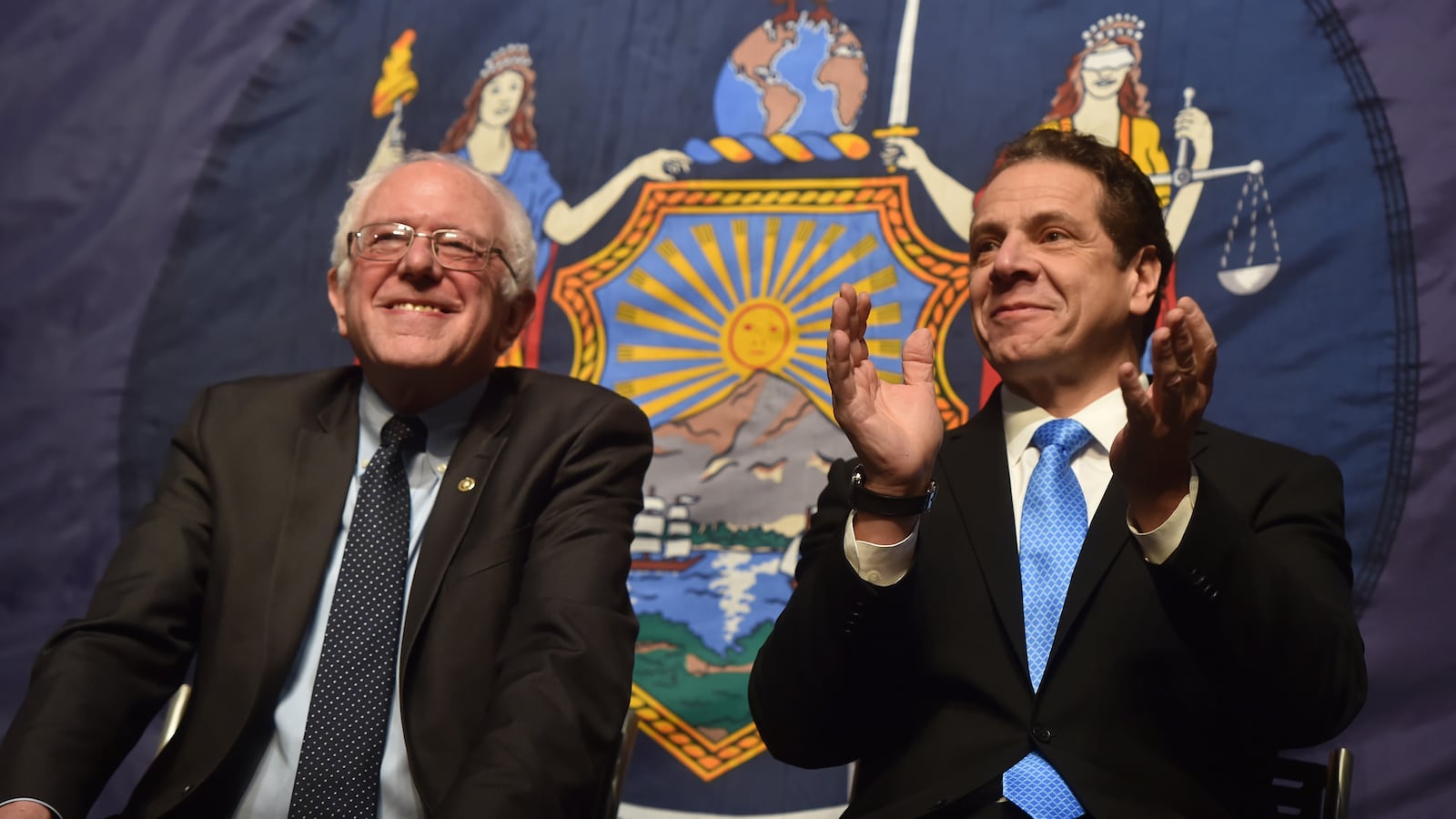Governor Andrew Cuomo unveiled a bold plan Tuesday to offer free college tuition at two- and four-year state schools for families making less than $125,000 per year.
The governor said his proposed “Excelsior Scholarship” would ease the financial burden on students attending SUNY and CUNY schools, mirroring a national push for debt-free college. Senator Bernie Sanders, who championed free public college during his presidential run, attended Cuomo’s announcement at LaGuardia Community College in Queens.
“College is a mandatory step if you really want to be a success,” Cuomo said. “This society should say, ‘We’re going to pay for college because you need college to be successful.’”
The plan, which must be approved by the state legislature, received a warm reception from many advocates, including the city’s teachers union president, Michael Mulgrew, who called the plan “visionary.” Even Senate Republicans, who could challenge the plan, did not dismiss the idea.
“While we will have to review the specifics when the governor releases his executive budget, this proposal appears to move us in a positive direction,” said Senate GOP spokesman Scott Reif.
Still, cost could become a hurdle. Cuomo estimates the final price tag for the program will be about $163 million per year when it is fully phased in, which could be a hard sell. The state estimates almost a million families statewide would qualify for the program, some of whom are also eligible for state and federal aid.
The program will also have to contend with another tough reality: Many students start college but never finish. Less than 40 percent of students who attended four-year public universities and roughly 8.5 percent of those attending two-year colleges in New York graduated on time in 2013, according to the state’s press release. Students who receive Cuomo’s proposed Excelsior Scholarship would have to enroll in college full-time, a feature designed to keep students on track to graduate.
That could be a “double-edged sword” for low-income students in New York City, said Nikki Thompson, executive director of OneGoal in New York City, a program that helps prepare students for college. While some students may benefit from more time spent on campus, she said, others could struggle to balance their jobs and family responsibilities with a full-time college commitment.
Thompson said the scholarship could make a big difference to many students, but was mindful that cost is not the whole battle for many students. A host of obstacles beyond tuition contribute to low graduation rates among low-income students, she said. Often students struggle to fit in on campus or to pay for books and trips home, she said.
“It’s almost as though the cost issue is the entrance exam,” Thompson said. “There’s a whole set of work that needs to be done around retaining [students].”
Large-scale college scholarship programs are sometimes accompanied by other college-focused support for students. For instance, the scholarship program “Say Yes to Education,” which offers tuition assistance to students in cities including Buffalo and Syracuse, provides additional support, such as mentoring and after-school services.
The goal of providing free college tuition is catching on around the country. It became a key issue in the 2016 presidential election, and in September 2015 President Obama announced “College Promise,” a program that helps students get free community college education. Several states, including Tennessee, now offer funding for students attending two-year colleges and a growing number of cities offer scholarship programs.
While providing tuition might not solve every obstacle that low-income college students face, any assistance will help, said Thompson.
“It removes the single greatest barrier for our students when it comes to making their college dreams a reality,” Thompson said.

